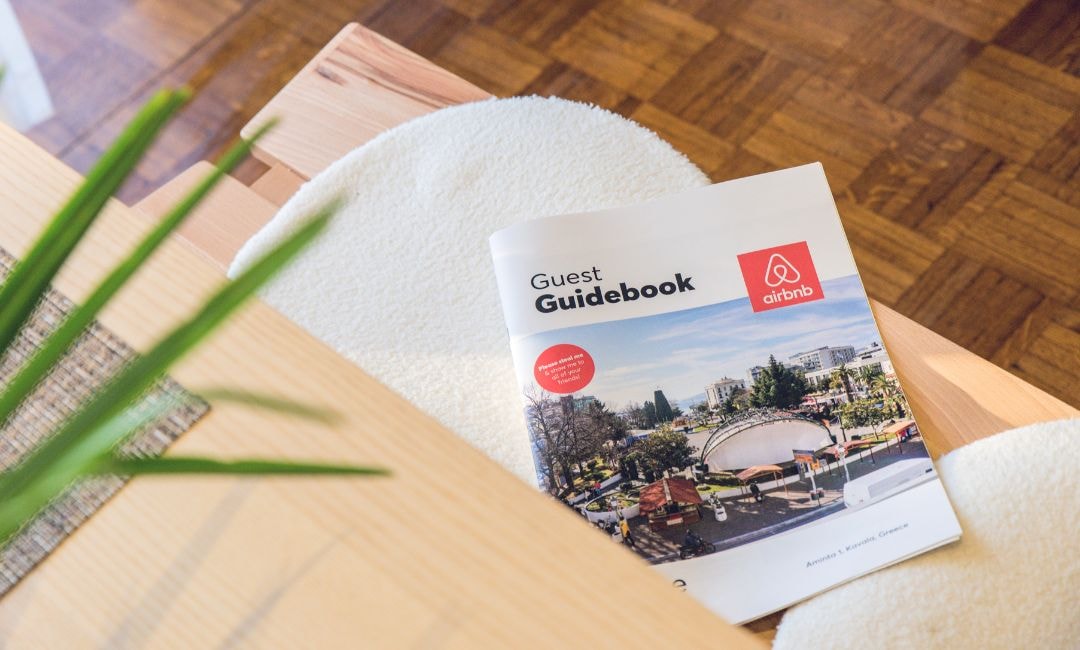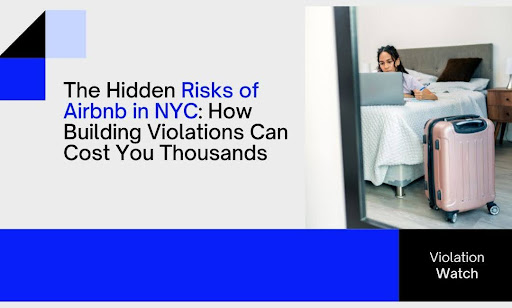Short-term rentals look like easy money—until the violations start stacking up. A listing goes live. Bookings pour in. Rent checks roll through like clockwork. Then the letter shows up. Maybe it’s from HPD. Maybe DOB. Maybe both. And suddenly that “passive income stream” comes with fines, court dates, and a building flagged for noncompliance.
Here’s what most people miss: NYC’s short-term rental crackdown isn’t theory—it’s enforcement in motion. The city is targeting illegal Airbnb setups hard. And the penalties? They don’t just hit hosts. They hit owners. Landlords. Property managers. Even investors. One illegal rental can trigger a chain reaction of building violations, and those violations don’t fade quietly. They show up in public records. They delay refinances. They kill deals. They tank building value.
And yes—they get expensive fast.
Here’s what we’re breaking down in this article:
- Why short-term rentals in NYC often violate local laws (even when hosts think they’re “doing it right”)
- How one illegal listing can trigger violations across multiple city agencies
- The most common NYC violations tied to Airbnb rentals—and what they really cost
- Why fines aren’t the biggest financial risk—you’ll see what is
- Real examples of violations tied to Airbnb operations (and where case studies could go)
- What enforcement trends show about where this is heading next
- How to protect your buildings and portfolios using smarter compliance tools like ViolationWatch
No sugarcoating. No speculation. We’re showing you exactly how this plays out—and how to keep your name out of the city’s violation database. Keep reading. This one matters.
Why Most Airbnb Rentals in NYC Break the Rules Without Realizing It
It starts with good intentions—clean unit, respectful guests, strict house rules. The host isn’t reckless. The building isn’t falling apart. Everything seems above board.
But in NYC, legal short-term rentals are almost nonexistent.
The city’s laws don’t just limit how often a unit can be rented. They restrict how it’s rented, who can stay there, and what type of building it’s in. And that’s where things break down—fast.
Here’s where the trouble usually starts:
- Stays under 30 days in Class A buildings: This is the big one. Most residential buildings in NYC are classified as “Class A.” That means they’re zoned for permanent residence, not transient use. Renting an apartment or condo for fewer than 30 days—even once—violates the Housing Maintenance Code unless the permanent tenant is also living there during the stay.
- Entire unit rentals while the host is away: It feels harmless. The unit’s empty, someone needs a place, and a weekend booking makes financial sense. But NYC law sees that as an illegal hotel stay. If the host isn’t present during the guest’s visit, the listing likely violates multiple city codes.
- Missing certificate of occupancy for transient use: Even if a unit seems ready for short-term stays, the building itself might not have the right occupancy classification. Without a valid certificate of occupancy that permits transient use, running a short-term rental can trigger immediate fines from the DOB and FDNY.
- Fire safety and egress issues: Short-term rentals are held to stricter fire safety standards. That includes requirements for fire-rated doors, clearly marked exits, and multiple means of egress. Most residential units aren’t built—or retrofitted—for this kind of compliance.
- Illegal listings in rent-stabilized or affordable housing: NYC law prohibits short-term rentals in rent-regulated or subsidized units. And yes, agencies do cross-check listings with rent records. When they find a match, it opens up a compliance mess with serious consequences.
- Advertising violations, even without a guest: The listing alone can be a violation. The city’s enforcement teams scrape platforms like Airbnb for listings that violate local laws, even if no one books. Posting an illegal rental publicly is enough to trigger enforcement action.
Even Airbnb hosts who follow platform rules fall into these traps. Why? Because Airbnb’s guidelines don’t override city law, and NYC’s rules aren’t exactly intuitive.
Once the violation hits, it’s not just the host on the hook. The building owner can face penalties. So can the managing agent. That’s why short-term rental “gray areas” in NYC don’t stay gray for long—they turn red, fast, on your violation record.
How a Single Airbnb Unit Can Drag Multiple NYC Agencies Into the Picture

One unit. One illegal listing. And suddenly, your entire building’s on several watchlists. That’s how fast enforcement moves in New York City. Airbnb violations don’t operate in isolation—they ripple through agency systems that talk to each other, flag records automatically, and stack penalties on top of each other.
The moment a short-term rental breaks city law, it becomes more than a housing issue. It creates building-wide exposure across multiple enforcement arms.
Here’s how it plays out:
- DOB (Department of Buildings): DOB investigates illegal use of residential buildings for transient occupancy. They issue violations for improper use, missing certificates of occupancy, and unapproved construction done to accommodate guests (like illegal partitions or modified layouts). Once flagged, DOB violations are public, searchable, and expensive to resolve.
- HPD (Housing Preservation & Development): HPD monitors residential building use and habitability. If a short-term rental violates occupancy rules or results in unsafe conditions, HPD can issue housing maintenance code violations. These stick to the property, not the host—and they can escalate into litigation if ignored.
- FDNY (Fire Department of New York): FDNY reviews egress routes, fire alarms, and sprinkler systems. Short-term stays in buildings not equipped for transient use often violate fire safety codes. That brings fire department inspections, potential vacate orders, and enforcement penalties for unsafe conditions.
- OATH / ECB (Environmental Control Board): Violations from DOB or FDNY often pass through ECB for administrative hearings. If you miss a hearing or fail to correct the violation, fines double, and interest racks up until payment is made or the condition is resolved.
- DOF (Department of Finance): Open violations can block permit approvals, affect tax classifications, and show up during financing or sale. In some cases, illegal use can prompt audits or clawbacks of property tax benefits.
- DOH (Department of Health): If the listing includes shared spaces like kitchens or is part of a multifamily layout, it can trigger DOH inspections. Violations here typically relate to sanitation, pest control, or improper waste management, especially if guest turnover is high.
- DSNY (Department of Sanitation): More guests mean more trash, and improper waste storage can trigger sanitation violations. Overflowing bins, unsealed containers, or excess refuse from frequent check-outs all increase scrutiny.
- DEC (Department of Environmental Conservation): Short-term rental modifications can result in unauthorized plumbing, HVAC, or water use changes, potentially leading to DEC concerns, especially in sensitive or landmarked zones.
Each agency has its own triggers. But they all monitor similar data points: occupancy patterns, building class, permit activity, and complaints. All it takes is one illegal Airbnb listing to light up those systems. The penalties don’t stop at the host. They stick to the property and drag building owners, managers, and investors into the middle of it.
This is where enforcement coordination works against you. And once multiple agencies are involved, cleaning up the record isn’t quick or cheap.
Which Violations Airbnb Short Term Rentals Trigger Most—and What They Cost
Short-term rentals in NYC carry more than legal risk. They trigger agency penalties that stick to the building’s public record, and every single one has a price tag.
These aren’t vague warnings. They’re formal violations with steep fines, court dates, and long-term consequences for anyone responsible for the property. Here’s where illegal listings hit hardest:
1. Illegal Occupancy (DOB)
Renting for fewer than 30 days without the host present in a Class A building violates NYC’s occupancy rules. DOB will flag the unit for transient use, often with multiple violations tied to improper use of space, layout modifications, or missing safety approvals.
- Cost range: $1,250 to $15,000 per violation
- Additional impact: Building-wide enforcement sweeps and delays in future permits
2. Failure to Maintain Fire Safety (FDNY)
Short-term guests increase fire risk. If your unit lacks required fire alarms, signage, sprinkler access, or egress routes, the FDNY will issue direct violations after inspection.
- Cost range: $1,000 to $5,000 per infraction
- Additional impact: Orders to vacate until compliance is proven
3. Housing Maintenance Code Violations (HPD)
HPD can issue violations for illegal use of space, unsanitary conditions, or failure to provide essential services. If guests complain—or inspectors find issues—it’s recorded permanently.
- Cost range: $250 to $1,000 per unit, per condition
- Additional impact: Repeated infractions can escalate into litigation
4. Administrative Hearings and Default Judgments (OATH/ECB)
Violations that go unresolved move to a hearing. Missing the deadline—or failing to correct the condition—leads to default penalties and liens.
- Cost range: Double the original fine, plus daily interest
- Additional impact: Property liens and damage to financing eligibility
5. Advertising Unlawful Use
Even if no guests check in, the public listing itself can be penalized. The city tracks listings and matches them to building records. If your building doesn’t allow short-term rentals, advertising one can be a standalone violation.
- Cost range: $1,000 to $5,000 per instance
- Additional impact: Trigger for agency inspections and follow-up fines
These numbers add up quickly, especially in multi-unit buildings. The bigger issue? These violations don’t vanish once paid. They remain in your public record, slow down sales, scare off lenders, and delay any construction or development plans tied to city approvals.
And that’s before you calculate the cost of legal counsel, tenant blowback, or time lost resolving it all.
Why the Real Cost of Airbnb Violations Isn’t the Fine
The fine stings. But it’s not the thing that tanks your margins or haunts your compliance record. The bigger financial hit comes from what the violation triggers next, and how it blocks critical movement across your property operations. Fines are a one-time blow. The follow-up costs stick around.
Here’s where the real damage happens:
- Financing stalls: Open violations show up in title searches, risk assessments, and underwriting decisions. If you’re refinancing or securing a new loan, that open DOB or HPD violation can freeze the deal until it’s resolved—and that delay alone can cost tens of thousands in interest shifts or missed windows.
- Property sales collapse: Buyers back out fast when they see unresolved violations. Even minor ones. Some walk away entirely. Others renegotiate with heavy discounts to cover perceived risk. Either way, it eats into valuation and cuts leverage.
- Insurance premiums spike—or policies get dropped: Insurers review open violations and enforcement histories during renewal. If your building shows a pattern of illegal occupancy or fire safety gaps, premiums go up—or worse, coverage disappears altogether. That exposes the building to even greater risk in future claims.
- Permits and renovations get denied: Planning to build, renovate, or repurpose space? Existing violations can block permit applications. Until they’re cleared from agency records, those plans sit in limbo. That delay ties up capital, labor, and long-term projections.
- Time and legal fees multiply fast: Fighting a default judgment. Coordinating hearings. Gathering documentation. Correcting underlying conditions. Every step burns time and racks up professional fees. Even a “small” violation can snowball into a months-long legal burden.
Fines might kick things off, but they rarely mark the end. The real risk is operational. Once violations touch your financing, permits, insurance, or deal flow, you’re not just cleaning up a record. You’re losing ground on your business.
Smart Ways to Keep Airbnb Violations From Crushing Your Portfolio

Avoiding short-term rental violations isn’t about doing everything yourself—it’s about putting the right system in place before problems spread.
NYC enforcement works fast. Agencies don’t wait. They issue violations, escalate penalties, and mark the record whether you’re ready or not. If you’re still relying on spreadsheets, email alerts, or last-minute law firm calls, you’re leaving the door wide open.
This is where smarter compliance tools pull their weight—and save your margin.
Why proactive tools work better than reactive fixes
You don’t need another platform with generic alerts. You need real coverage that matches how NYC operates. One system. All agencies. Every violation.
That’s exactly where ViolationWatch makes the difference.
This matters even more if your building has any history of short-term renting. NYC’s strict rules don’t leave room for error, especially when enforcement touches everything from zoning laws to liability insurance requirements. New rules now create even tighter pressure for anyone operating short-term rental properties, whether intentionally or through subtenants using the unit as a vacation rental without disclosure.
Here’s what ViolationWatch actually solves:
- Tracks every building violation from all major NYC agencies: One dashboard gives you access to DOB, HPD, ECB, FDNY, DOF, DEP, DOT, DSNY, DEC, and DOH data—without jumping across city databases or waiting on legal teams.
- Sends instant alerts for new violations, hearings, and changes in status: No more digging through city websites. You get notified the moment a violation hits, so you can take action fast, before hefty fines escalate or hearings pass.
- Automates violation tracking and pulls historical records: Instead of chasing down agency PDFs, you can see the full history of violations, corrections, and compliance statuses across your entire portfolio in one place.
- Lets you manage and upload all related documents in one secure system: Store, organize, and share paperwork directly inside the dashboard. That means no more lost files or scattered folders when a hearing comes up.
- Supports solo managers and large portfolios with the same precision: Whether you handle one building or two hundred, the system scales without forcing you to hire more people or hope nothing falls through the cracks.
- Connects you with compliance pros when things escalate: Some violations are complex. Others are urgent. You don’t need to figure it out alone. Get expert help from professionals who’ve dealt with every agency and every code on the books.
It’s easy to miss a listing. It’s easy to assume tenants aren’t using platforms like Airbnb. But that one site can lead to a violation that impacts a property owner’s financing, insurance, or ability to rent in the long-term rental market. New Yorkers managing multi-unit buildings face this risk daily. One violation triggered by a renter hosting noisy parties could land the entire building on the city’s enforcement radar. That includes issues like property damage, missing security deposit resolutions, or suspected hidden cameras—things enforcement agents now associate with the black market of illegal home rentals.
Your buildings are only as protected as your compliance system. If Airbnb activity is active—or even suspected—across your units, tools like ViolationWatch aren’t optional. They’re baseline protection, especially in a market where people renting often try to earn extra income by bending the rules.
To stay vigilant, avoid hidden fees, protect long-term tenants, and preserve relationships with long-term residents, proactive monitoring is the move. Whether it’s catching short listings or screening for front desk complaints about unauthorized trip guests, it all leads back to this: smart systems protect hosts before mistakes become violations. And that makes you more than a manager. It makes you bulletproof.
Avoid Costly Airbnb Violations With the Right Strategy in NYC
NYC’s short-term rental rules aren’t confusing—they’re restrictive by design. One wrong move with an Airbnb listing can flip your building from asset to liability fast. But now, you’ve got the blueprint to stay ahead of the mess.
You know where illegal rentals create blind spots. You’ve seen how one unit can trigger violations from multiple agencies—and how fines are not the scariest part. The real hit is what those violations cost you long after the paperwork lands.
Let’s be honest, the vast majority of short-term listings don’t fully comply with local law. They’re often created without understanding what NYC codes actually require guests to follow, or what landlords are risking when units are used for short-term leasing under the radar.
This city isn’t just trying to collect fees. It’s trying to rein in a growing housing crisis, driven in part by illegal rentals shrinking the pool of available long-term housing. Every unauthorized night booked through platforms like Airbnb offers short-term gain… but it invites long-term damage.
So here’s what changes next:
- You stop relying on assumptions and platform rules. You track local law down to the agency level.
- You stop letting fines sneak up. You spot risk patterns early and handle violations before they escalate.
- You stop burning time on scattered records and surprise penalties. You run your compliance like a pro—with a system that thinks like NYC enforcement does.
That’s what makes ViolationWatch more than a monitoring tool. It’s how you prevent Airbnb mistakes from bleeding into your balance sheet, tenant experience, or sale timeline. Smart building owners don’t wait for violations. They catch them, resolve them, and move on. And yes, they protect their portfolio while making more money the right way. That control starts now.

